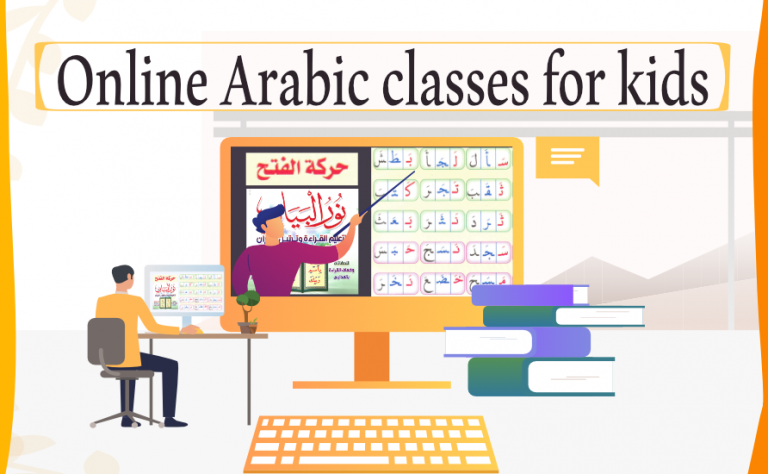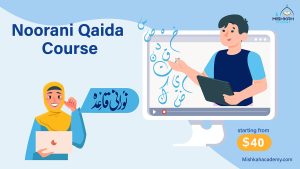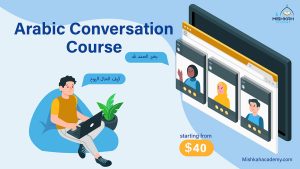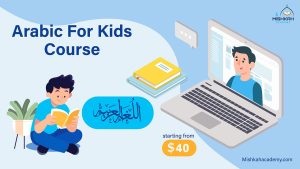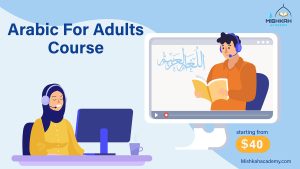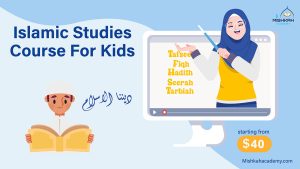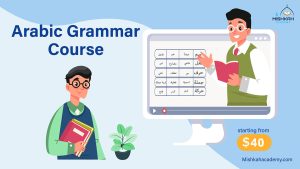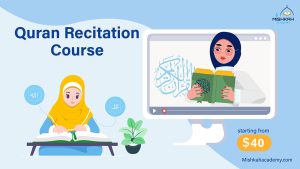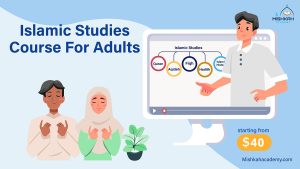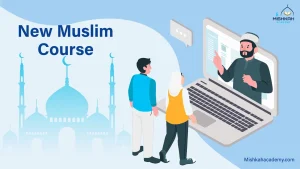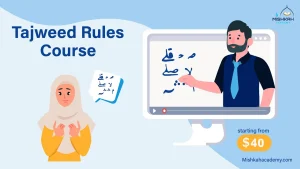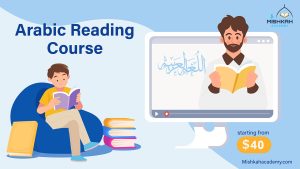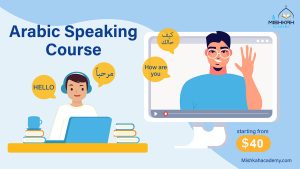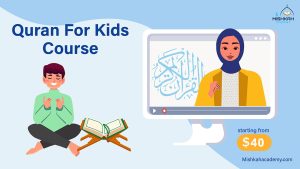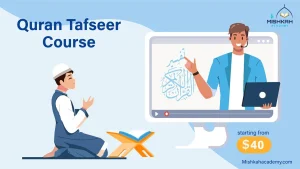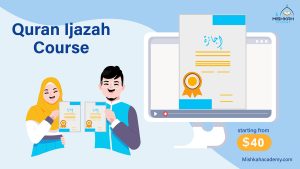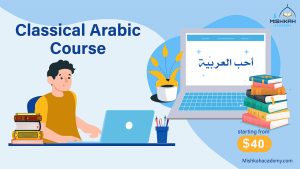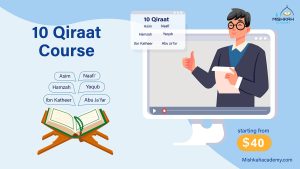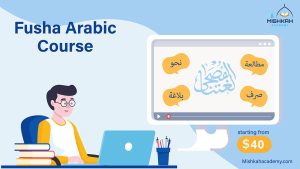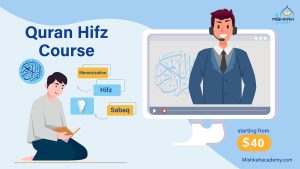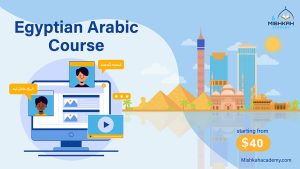The Benefits of Learning Arabic Online for Kids: Why It’s Worth the Investment
Table of Contents
ToggleAre you a parent searching for an enriching and valuable learning opportunity for your child? Look no further! In the digital age, the world is at our fingertips, and so are countless opportunities for personal growth. One language that holds immense value and opens doors to new cultures is Arabic. But why should kids learn Arabic online? Join us as we explore the incredible benefits of this investment in your child’s education. From enhanced cognitive skills to global connections, let’s discover how learning Arabic online can truly shape their future.
Growing importance of learning Arabic in today’s world
In today’s increasingly globalized world, the importance of learning a second or even third language cannot be overstated. With technology connecting people from different corners of the globe, it has become essential for individuals to have a working knowledge of languages other than their native tongue. And one such language that is gaining immense importance in recent years is Arabic.
With over 300 million native speakers and being an official language in 26 countries, Arabic is not just another language but a gateway to understanding and connecting with a vast and diverse culture. From business opportunities to career growth, from understanding global politics to exploring rich literature and art forms, there are countless benefits that come with learning Arabic.
One might wonder why this ancient Semitic language has suddenly gained so much significance in today’s world. In this section, we will delve deeper into the growing importance of learning Arabic and how it can benefit children in particular.
Learn Arabic Online For For Kids

1. Gateway to Understanding Middle Eastern Culture:
The Middle East is home to some of the oldest civilizations and cultures in the world. Learning the Arabic language can open doors for children to immerse themselves in these rich traditions and customs. It allows them to understand different perspectives, values, beliefs, and ways of life.
By learning Arabic online for kids, they can gain insight into Islamic culture – its history, religion, literature, music, art forms – all while staying within the comfort of their homes.
2. Enhances Career Prospects:
In today’s job market where companies are expanding globally at a rapid pace, having proficiency in Arabic can be a valuable asset. Being able to communicate in the language can create job opportunities in fields such as business, international relations, diplomacy, journalism, and more.
The demand for Arabic speakers is high in various sectors due to the increasing economic ties between Western countries and Arab nations. Moreover, with many multinational companies establishing a presence in the Middle East, learning Arabic can give children an edge over their peers when it comes to employment opportunities.
3. Opens Doors for Travel:
Arabic is one of the six official languages of the United Nations and is widely spoken in several countries across Africa and Asia. Knowing Arabic can make it easier for children to travel and explore these regions without facing any language barriers.
Traveling becomes more than just visiting popular tourist destinations; it becomes an opportunity to connect with people from different cultures on a deeper level. Children who learn Arabic online will be better equipped to appreciate and understand their surroundings while traveling to Arab countries.
4. Boosts Cognitive Skills:
Learning Arabic has been shown to have numerous cognitive benefits for children. It facilitates brain development by improving memory retention, problem-solving abilities and enhancing critical thinking skills.
Moreover, studies have also suggested that bilingual or multilingual individuals have a higher capacity for empathy and are better at understanding others’ perspectives. By learning Arabic, children can develop cross-cultural competency, which is an essential skill in today’s interconnected world.
5. Opens the Door to a Wealth of Literature and Art:
Arabic is one of the world’s oldest languages and has a rich literary heritage dating back centuries. Learning Arabic opens up a whole new world of literature and art forms for children to explore. They can read works by renowned authors such as Naguib Mahfouz, Khalil Gibran, and Amin Maalouf in their original language.
Moreover, Arabic calligraphy, music, poetry, and architecture are highly celebrated forms of art that children can appreciate and learn more about by knowing the language.
The growing importance of learning Arabic cannot be ignored. It not only opens up doors for career opportunities but also allows children to connect with a diverse culture on a deeper level. It enhances cognitive skills and provides access to a wealth of literature and art forms. With online learning platforms now offering easy access to learning Arabic from anywhere in the world, there has never been a better time for children to start their journey towards becoming proficient in this beautiful language.
Benefits of learning Arabic for kids: Cultural awareness and global opportunities
Learning a new language can be an exciting and rewarding experience for children, and learning Arabic is no exception. In addition to the cognitive benefits such as improved memory, problem-solving skills, and creativity, there are also many cultural awareness and global opportunities that come with learning Arabic.
Cultural Awareness:
Arabic is not just a language but also a window into a rich and diverse culture. By learning Arabic, children gain exposure to the customs, traditions, values, and beliefs of the Arab world. This can broaden their perspectives and help them develop greater empathy and understanding for people from different backgrounds. They will learn about Islamic traditions like Ramadan and Eid al-Fitr, as well as other cultural practices such as traditional dances, music, cuisine, art, and literature.
Understanding these aspects of Arab culture can also break down stereotypes and misconceptions that may exist in society. It helps children appreciate diversity and promotes inclusivity in their thinking at an early age.
Global Opportunities:
The Middle East is a rapidly growing region with many economic opportunities. Knowing Arabic opens up doors to various job opportunities in fields such as international business, diplomacy, tourism, education, translation/interpretation services – just to name a few. Many multinational companies are expanding their operations in the Middle East due to its strategic location between Europe, Asia, Africa.
Moreover , the Arab world has a long history of trade and commerce, and learning Arabic can give children a competitive edge in the global job market. Being able to communicate with Arabic speakers can also lead to personal and professional connections that can prove valuable in the future.
In addition to career opportunities, knowing Arabic can also open up travel opportunities. The Middle East is home to many breathtaking natural wonders and historical sites such as the Pyramids of Giza, Petra in Jordan, and the Dead Sea. By learning Arabic, children can communicate with locals and fully immerse themselves in the culture during their travels.
Promotes Multilingualism:
Learning Arabic also enhances a child’s overall language skills. It is one of the most challenging languages to learn due to its complex grammar rules and unique writing system. Therefore, mastering it requires dedication and patience. However, once children become proficient in Arabic, they will have an easier time learning other languages such as Hebrew or Farsi – both of which share similarities with Arabic.
In conclusion, learning Arabic gives children a deeper understanding of the Arab world’s culture while opening up countless opportunities for their future. It promotes cultural awareness, global opportunities, and multilingualism – all essential skills for success in our increasingly interconnected world.
The convenience of online classes for kids: Flexibility and accessibility
In the modern world, online learning has become increasingly popular and necessary. This is especially true for children, who can now access educational resources from the comfort of their own homes. One subject that is gaining popularity in the online learning realm is Arabic. With its rich cultural heritage and global relevance, many parents are recognizing the value of having their children learn Arabic through online classes.
One of the main advantages of online Arabic classes for kids is the flexibility it offers. Unlike traditional classroom settings, where students have to adhere to a fixed schedule, online classes allow children to learn at their own pace and in a way that suits their individual needs. This means that they can fit their lessons around other activities, such as sports or extracurriculars, without compromising on their education.
Moreover, with traditional face-to-face classes, students often have to travel long distances to attend lessons. This can be time-consuming and inconvenient for families who lead busy lives. However, with online classes, children can access quality Arabic instruction from anywhere with an internet connection – whether it’s from home or while traveling. This level of accessibility makes it easier for parents to incorporate language learning into their child’s routine without disrupting other commitments.
Another key benefit of online Arabic classes for kids is the wide range of resources available at their fingertips. Online platforms offer a variety of interactive tools and multimedia materials that make learning more engaging and fun for young learners. From colorful games and quizzes to videos and audio recordings – these resources cater specifically to younger audiences
Personalized learning experience: One-on-one instruction and tailored curriculum
A personalized learning experience can make all the difference in a child’s education journey, especially when it comes to learning a new language like Arabic. With online learning platforms, children have access to one-on-one instruction and tailored curriculum that caters to their unique needs and pace of learning.
One of the biggest advantages of online Arabic classes for kids is the opportunity for individualized attention from a qualified teacher. In traditional classroom settings, teachers may not always have the time or resources to cater to each student’s specific learning style. However, with online classes, children get undivided attention from their instructor, allowing them to ask questions and receive personalized feedback on their progress.
Moreover, the curriculum used in online Arabic courses can be tailored to suit each child’s needs and interests. This level of customization ensures that students are engaged and motivated while learning the language. For example, if a child is interested in music or sports, their lessons can incorporate vocabulary related to these topics, making the learning experience more meaningful for them.
Another benefit of personalized instruction is that it allows children to learn at their own pace. Every child has different strengths and weaknesses when it comes to language acquisition. With one-on-one instruction, teachers can identify areas where a student may need more practice or support and adjust the curriculum accordingly. This helps prevent any gaps in understanding and ensures that children are building a strong foundation in Arabic.
Furthermore, online Arabic courses often use interactive tools such as games, videos, and quizzes that are not only engaging but also help teachers assess a child’s progress. Teachers can track a child’s performance and adjust their teaching methods to better support their learning.
In conclusion, a personalized learning experience through one-on-one instruction and tailored curriculum can greatly benefit children learning Arabic online. It allows for individualized attention, customized lessons, and the ability to learn at one’s own pace, making the language learning journey more effective and enjoyable for young students.
Qualified and experienced instructors: Ensuring quality education for your child
When it comes to learning a new language, having qualified and experienced instructors is crucial for ensuring that your child receives quality education. This is especially true for learning Arabic online, where the guidance and expertise of instructors can make all the difference in your child’s language learning journey.
At [Name of Online Arabic Learning Platform], we understand the importance of having well-trained and knowledgeable instructors. That’s why we handpick our team of teachers who are not only fluent in Arabic, but also have extensive experience in teaching children.
Our instructors are all native speakers of Arabic, ensuring that your child learns from someone who has a deep understanding and mastery of the language. This is especially beneficial for young learners as they are able to pick up on nuances and subtleties of the language that non-native speakers may not be able to teach.
In addition to being native speakers, our instructors also have years of experience teaching Arabic to children both in-person and online. They have a thorough understanding of how young minds learn and tailor their teaching methods accordingly. This means that your child will receive personalized instruction based on their unique needs and learning style.
Moreover, our instructors undergo rigorous training to ensure that they are equipped with modern teaching techniques and tools necessary for effective online instruction. They are constantly updating their knowledge and skills to provide your child with the best possible learning experience. From interactive activities to engaging visuals, our teachers use various methods to make learning Arabic fun and engaging for kids.
One aspect that sets our instructors apart is their passion for teaching and their dedication to helping children learn Arabic. They are patient, understanding, and always willing to go the extra mile to help your child succeed in their language learning journey.
In summary, our team of qualified and experienced instructors is committed to providing your child with the best education possible. With their expertise and passion for teaching, your child will be able to learn Arabic effectively and develop a love for the language that will last a lifetime.
Interactive and engaging lessons: Making language learning fun for kids
Interactive and engaging lessons are an essential aspect of learning Arabic online for kids. Traditional methods of language learning, such as textbooks and worksheets, can be dull and unappealing for children. However, by incorporating interactive and engaging lessons into the curriculum, children are more likely to stay focused, motivated, and excited about learning Arabic.
One of the main advantages of interactive and engaging lessons is that they make language learning fun for kids. By using games, videos, songs, and other multimedia tools, children can learn Arabic in a stimulating and enjoyable way. This approach helps to reduce the perceived difficulty of learning a new language and encourages children to actively participate in the lesson.
Moreover, interactive lessons allow children to practice their speaking skills in a safe environment. Many children may feel self-conscious or embarrassed when speaking a new language in front of others. However, with online learning programs that offer one-on-one or group classes with native Arabic speakers, children can feel comfortable practicing their pronunciation without fear of judgment.
Another benefit of incorporating interactive elements into online Arabic lessons is that it caters to different learning styles. Some children may prefer visual aids like flashcards or videos while others learn best through hands-on activities like role-playing or crafting projects related to the lesson topic. By providing a variety of interactive options, online programs can adapt to each child’s unique way of learning.
Furthermore, interactive lessons also promote critical thinking skills among young learners. Through activities such as puzzles or word games, children are challenged to think creatively while applying what they have learned. This approach not only helps them retain the language better but also develops problem-solving and analytical abilities.
In conclusion, interactive and engaging lessons are crucial in making language learning enjoyable for kids. By incorporating games, videos, songs, and other multimedia tools into the curriculum, children can develop a strong foundation in Arabic while having fun. These types of lessons not only make learning more exciting but also help children stay motivated and interested in their language studies.
Technological tools and resources: Enhancing the learning experience for young learners
Technological tools and resources have revolutionized the way we learn, and this is particularly true for young learners. In today’s digital age, children are surrounded by technology from a very early age, making it natural for them to use it as a learning tool. Therefore, incorporating technological tools and resources in Arabic language learning can greatly enhance the overall learning experience for kids.
One of the most significant benefits of using technological tools and resources for young learners is that it makes learning fun and engaging. Unlike traditional methods where children may get bored or lose interest quickly, technology offers interactive and visually appealing platforms that capture their attention. This can be especially helpful in teaching Arabic, which can be perceived as difficult or boring by some kids. With various animated videos, games, and apps specifically designed for teaching Arabic to kids, learning becomes more enjoyable and less daunting.
Moreover, technological tools offer a personalized learning experience for each child. They allow kids to progress at their own pace and choose activities that cater to their individual needs. This level of customization ensures that children do not feel overwhelmed or left behind in their language learning journey. It also helps them stay motivated as they see tangible progress in their skills.
Another advantage of utilizing technological tools is the access to a vast array of resources available online. Learning Arabic online opens up endless possibilities for kids to explore different materials such as eBooks, audio books, podcasts, videos, etc., all with just a few clicks. These diverse resources not only make language learning more exciting but also provide a well-rounded approach to learning.
Technology also enables children to practice their Arabic language skills outside the classroom. With the use of educational apps and online platforms, kids can continue their learning at home or on-the-go. This constant exposure and reinforcement of the language help in retaining knowledge and improving fluency.
In addition to these benefits, technological tools also offer opportunities for collaboration and communication among students. Many online platforms facilitate virtual classrooms where kids can interact with peers from different parts of the world. This allows them to practice their Arabic language skills with others, thus building confidence in using the language.
In conclusion, incorporating technological tools and resources in teaching Arabic to young learners can greatly enhance their learning experience. It makes learning more engaging, personalized, and accessible while providing a diverse range of resources for children to explore. Therefore, it is essential for educators to embrace technology as a tool for teaching Arabic to children and make the most out of its potential in enhancing their language skills.

